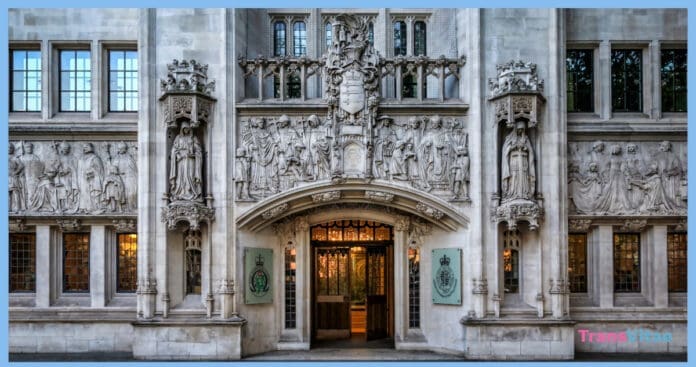A pivotal legal battle is underway in the UK, with the Supreme Court grappling with the definition of “woman” under equality law. The outcome of this case could have profound implications for transgender rights across the UK.
The case, brought by the women’s rights campaign group For Women Scotland (FWS), seeks to determine whether transgender women holding Gender Recognition Certificates (GRCs) should be legally considered women under the Equality Act 2010.
FWS argues that “sex” in the Equality Act should refer solely to biological sex assigned at birth. Their lawyer, Aidan O’Neill KC, emphasized this point, stating that sex is an “immutable biological state” determined “from conception in utero.” This stance, they believe, is crucial to protecting the rights and spaces designated for women based on their biological sex.
This argument has sparked significant debate, with organizations like Amnesty International expressing concerns about the potential erosion of trans rights. They argue that excluding trans women with GRCs from protections against sex discrimination contradicts fundamental human rights principles.
The crux of the legal challenge lies in the interpretation of two key pieces of legislation:
- The Gender Recognition Act 2004: This act allows transgender individuals to obtain a GRC, legally recognizing their acquired gender. It states that this change of gender applies “for all purposes.”
- The Equality Act 2010: This act protects individuals from discrimination based on various characteristics, including “sex,” “sexual orientation,” and “gender reassignment.” It defines “woman” simply as “a female of any age.”
The court must now determine whether the Equality Act’s definition of “woman” encompasses transgender women with GRCs, or if it exclusively refers to biological sex.
The Road to the Supreme Court
This complex legal battle began with a 2018 Scottish law aimed at increasing female representation on public boards. The law’s definition of “woman” included transgender women, which FWS challenged. While they initially succeeded in having the definition removed, the Scottish government later issued guidance stating that the law would include women as defined by both the Equality Act and the GRA, recognizing GRCs as legally changing one’s sex.
FWS challenged this guidance, but their case was dismissed by the Court of Session. Undeterred, they appealed to the Supreme Court, where the case is now being heard.
Potential Implications
The Supreme Court’s decision could have far-reaching consequences:
- Transgender Rights: A ruling in favor of FWS could potentially weaken protections for transgender individuals under the Equality Act, impacting their access to services and employment opportunities.
- Single-Sex Spaces: The ruling could affect the operation of single-sex spaces like shelters, bathrooms, and changing rooms, potentially leading to legal challenges and policy changes.
- Equality Legislation: The case may prompt calls for the UK government to amend the Equality Act to provide greater clarity and address potential conflicts between the GRA and the Equality Act.
The Bottom Line
This case highlights the ongoing struggle for transgender rights and recognition. While legal arguments are presented and debated, it is crucial to remember the human impact of this case. Transgender individuals deserve to live their lives free from discrimination and with the full protection of the law.
The Supreme Court’s decision will undoubtedly shape the future of transgender rights in the UK. It is imperative that the voices and experiences of transgender people are heard and considered throughout this process. As we await the court’s judgment, let us strive for empathy, understanding, and a commitment to ensuring equality for all.


